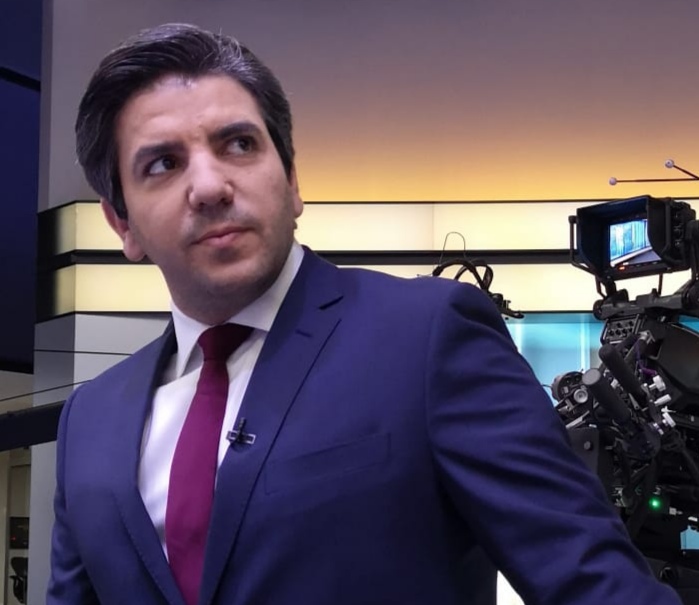من تلك العدسات الموجودة في جيوبنا، أصبح بإمكان كل مواطن أن يروي قصته الخاصة عما يجري حوله من أحداث. ومع تزايد انتشار الإعلام الاجتماعي أو صحافة المواطن، يعود النقاش ذاته إلى الواجهة، خاصة فيما يتعلق باعتمادها مصدرا للخبر والمعلومة، وتأثيراتها المختلفة على الحقيقة.
حضر الإعلام الاجتماعي بقوة في ثورات الربيع العربي عموما، وكانت الثورة السورية وما زالت -دون شك- أبرز الأمثلة العربية على قوة هذا الإعلام وقدرته على التأثير.
لذلك، بدءا من تغطية المظاهرات وما تعرضت له من قمع، وصولا إلى يوميات الحرب وتفاصيلها، انتعشت ما أطلق عليها صحافة الناشطين التي شكلت مصدرا لزوايا متعددة من الحقيقة، رغم كل المؤاخذات التي يمكن أن تسجل حولها.
الاندماج العاطفي كان واحدا من أبرز المآخذ على عمل الناشطين، فكثير منهم لم يفرقوا بين الممارسة الصحفية والنشاط الثوري. والحال أن الغاية بالنسبة لهم كانت واحدة. وهكذا، تأثرت القصص الصحفية التي كان ينشرها الناشطون على وسائل التواصل الاجتماعي، سواء عبر مقاطع الفيديو أو المنشورات. فالذي كان ينشر الخبر هو نفسه المتظاهر الثائر على الأنظمة الفاسدة، وهو نفسه الصحفي الذي ينقل الخبر الذي غابت عنه عدسات الصحفيين أو غُيّبت في ظل أنظمة لا تقبل إلا بصحافة تجترّ روايتها الرسمية.
ورغم كل ذلك، فإن وكالات الأنباء الكبرى ووسائل الإعلام لم تتوقف عن التعامل مع أخبار الناشطين لا سيما المصورة منها، لأنها كانت تشكل المصدر الوحيد لما يحدث، بعد اتباع قواعد التحقق التي تجري على الأخبار الواردة من وسائل التواصل. وكانت صيغة النسبة إلى الناشط في مطلع أخبار وسائل الإعلام بعبارة تبدأ على النحو التالي "بث أو قال ناشطون"، لرفع المسؤولية عما قد يعتري تلك الأخبار من شك. وقد أصبحت في الوقت نفسه صيغة تمريض تشير إلى أن الخبر يقل في مصداقيته درجة عما ينقله الصحفيون المحترفون، لكنه يكتسي الأهمية ويستحق النشر كرواية مناقضة للأنظمة العربية، وهي في الغالب أكثر مصداقية، لا سيما حينما تُظهر مقاطع الناشطين المرئية تفاصيل المظاهرات ولافتاتها وهتافاتها، وتقابلها رواية رسمية مفرطة في السذاجة والاستغباء، تقول إن أولئك المتظاهرين خرجوا لشكر ربهم على المطر!! وهو الوصف الذي ارتأى الإعلام الرسمي السوري استخدامه ذات مرة لتبرير خروج المظاهرات ضده في العاصمة دمشق.
في الجانب المهني أيضا، وقعت عدسات الناشطين في محاذير خطيرة أثناء تغطية الأحداث، مردها إلى الجهل بقواعد البث والنشر وأخلاقياته. أحدها على سبيل المثال لا الحصر، توظيف الأطفال في مقاطع الفيديو لا سيما في مشاهد القصف، حيث ظن بعض الناشطين أن استنطاق الأطفال للتعبير عن آراء سياسية قد يضيف إلى خبرهم مصداقية أكبر. والحال أن تلك المقاطع كانت السبب الرئيسي في امتناع الكثير من وسائل الإعلام عن الاستعانة بها في قصصها الإخبارية.
غير أن غياب الصحفيين المحترفين عن كثير من مواقع الحدث الكبرى بفعل خطورة تلك الأماكن واستهداف الصحفيين فيها لإخفاء الحقيقة، لفت نظر المؤسسات المعنية بدعم الصحافة إلى عدسات أولئك الناشطين، ونحا بكثير منها إلى تقديم الدعم لهم سواء بتجهيزات العمل والحماية، أو بتنظيم دورات التدريب المهني لتطوير أدائهم، كتلك التي قام بها معهد الجزيرة للإعلام لناشطين من دول الربيع العربي في مناطق مختلفة.
كما قامت نقابات صحفية كرابطة الصحفيين السوريين بمنح عضوية "غير أساسية" للناشطين ضمن قيود ومعايير خاصة تشجعهم على تقديم عمل أكثر احترافية، وقدمت لهم الدعم والتدريب وصولا إلى منحهم بطاقات صحفية بتلك العضوية المقيدة من الاتحاد الدولي للصحفيين الذي تحظى الرابطة باعترافه، إضافة إلى توثيق الانتهاكات التي يتعرضون لها من قبل المركز السوري للحريات الصحفية التابع للرابطة.
إن إيمان المؤسسات المعنية بحرية الصحافة بالدور الذي قام به الناشطون في دول الربيع العربي وما تم تقديمه لهم من تأهيل وتدريب، حوّل عددا لا يستهان به منهم إلى صحفيين محترفين يتوزعون على كثير من المؤسسات الصحفية الكبرى مع تقدير كبير لأعمالهم، بل إن جائزة الشجاعة الصحفية التي تقدمها منظمة "مراسلون بلا حدود" سنويا لأحد أبرز الصحفيين في العالم، ذهبت عام 2016 إلى أحد هؤلاء الناشطين، وهو هادي العبد الله الذي أصبح من أبرز مراسلي الحرب المستقلين في سوريا.
إصرار بعض الصحفيين من رواد المدرسة التقليدية على احتكار مصدر الخبر وقواعده، ورفض عمل المواطنين الصحفيين رفضا قاطعا، يعتبر نرجسية لم يعد يسمح بها واقع انتشار المعلومات اليوم، وفي مجتمع يمتلك كل مواطن فيه عدسته وآلة البث في جيبه، وتدعمه في ذلك عشرات التطبيقات التي تساعد هؤلاء المواطنين الصحفيين على تقديم قصصهم بأدوات كانت حكرا على الصحفيين المحترفين فيما مضى.
على أن ذلك لا يعني بكل تأكيد فتح الباب على مصراعيه على اعتماد المواطن الصحفي مصدرا مقبولا دون قيود، بل يعني بذل المزيد من الجهد لضبط عمله والاستفادة منه في إغناء المقصد الأساسي للصحافة الذي يكمن في إيصال الحقيقة للناس مهما كان مصدرها وأيا كان شكلها. وعلينا أن نتذكر مرة أخرى أن كثيرا من الحقائق التي وصلتنا عن ميادين الربيع العربي وثوراته، مدينة لأولئك الناشطين، ولم تكن لتجد طريقها إلى العالم لولا اعتماد وسائل الإعلام على عدساتهم.








































